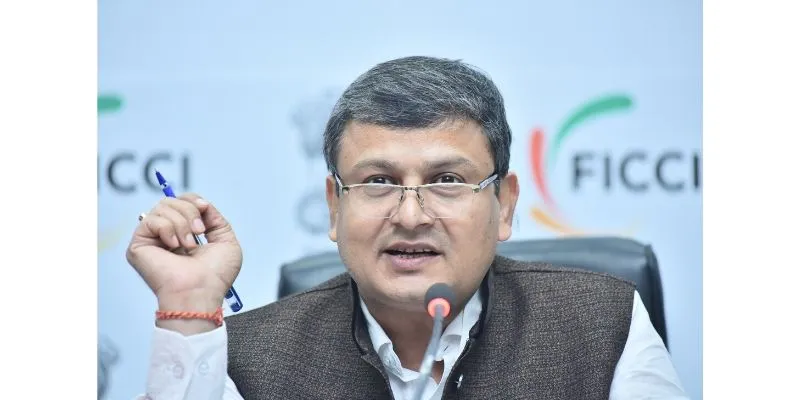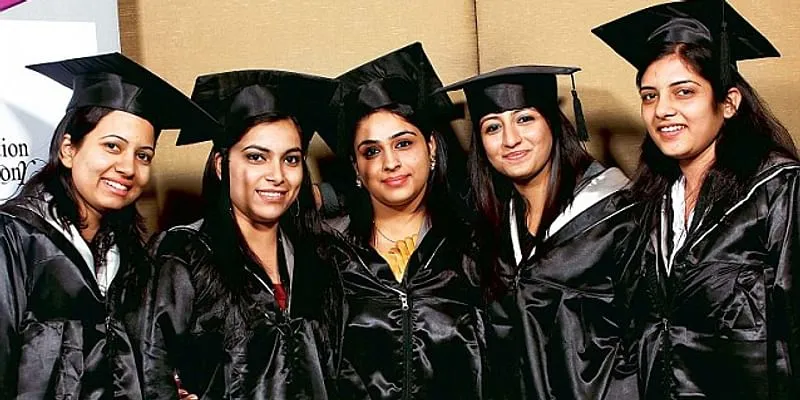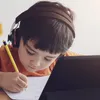Online classes, stagnant placements: students and parents adapt in the time of coronavirus
As the face of education changes around the world, students, parents, teachers, and institutes are looking for different approaches to keep the learning going.
The coronavirus hit the country right before students were about to finish writing their board examinations. The pandemic did not just halt examinations, but the future of many students, who will now be appearing for the same in July.
With the nation under a lockdown, parents, students, teachers, and school authorities had no option but to turn to online education. For almost two months now, education has been taken over by Zoom classes, government-provided online classes, and edtech startups.
From digital alternatives to doing away with examinations and tests, schools and colleges are making unprecedented decisions. Keeping the pandemic in mind, some opined that the academic year be changed from April–March to July–September.

In fact, graduates fresh out of college are also looking at a bleak future as employment prospects remain stagnant or nil. SocialStory spoke to some of the stakeholders in the sector to understand how education will be post the COVID-19 pandemic.
The changing system
“The COVID-19 crisis is continuously telling us to change our education system so that we can make our young learners ready for the jobs the future might hold. Tech can’t replace teachers. However, it can empower teachers, and they can do much better by having various data analyses," Dr Narendra Shyamsukha, Founder and Chairman, ICA Edu Skills, tells SocialStory.
The Ministry of Human Resources and Development recently announced that universities would resume operations in August for current batches, and in September for incoming batches, which has given administrations a buffer period to curate the most conducive plan of action.
Chief Operating Officer of PES Institutions, Professor Ajoy Kumar, says,
"Ever since the lockdown was announced, we started conducting about 220 sessions of lectures on a daily basis across all departments and disciplines.”
Every week, the college administration brainstorm on how to go about these changes, as the situation keeps evolving rapidly. Currently, it is gearing up for the PES University's entrance exams.

Prof Ajoy Kumar, COO, PES Institutions
ALSO READ

PES University is now looking to conduct examinations for students in July, as advised by the government. Ajoy shares that once physical classes resume, the university is looking at seating two or three students on one bench, with teachers instructing them from about a distance of six feet. Different sets of students will be asked to be present on campus at certain fixed time slots to ensure precautions.
“According to us, the model will evolve into a combination of online and offline classes to get the job done,” he adds.
Making education more tech-focused
While the traditional education system had to undergo a transformation during the coronavirus-led lockdown, parents have been apprehensive about the effectiveness of online classes, especially because of the absence of physical interaction – a vital factor in the overall growth of a student’s interpersonal skills and social development.
The sudden transition to online schooling comes with drawbacks such as low quality of videos, lack of accreditation, more workload for students, and more pressure to maintain self-control and self-discipline.
"This is a generation that has grown up in a truly globalised world. The effect of this global pandemic is likely to reflect on their education,” Narendra says.

Dr Narendra Shyamsukha
While in some situations online teaching has proved to have drawbacks, in others, it has served as stepping stones for college students to obtain better Grade Point Averages (GPAs), leading all stakeholders to understand how different modes of learning can lead to different results.
According to the HRD Ministry, students from Class 1 to 8 have been promoted to the next grade without any examinations, while higher secondary students await board examinations. A lot of universities have conducted online graduation for the students, due to the pandemic.
So, what’s next?
Currently, fresh graduates are facing a dilemma when it comes to future plans. While some choose to seek employment, others are opting for higher education after their bachelors courses. In fact, the number of students applying for master's and doctorate programmes has increased all over the world.
However, with employers looking to cut short their workforce to save money, the future of the job market also looks bleak. Students who had been hired as fresh employees into big companies are also dealing with the fact that their offer letters are getting revoked.
According to the International Monetary Fund (IMF), the global economy is expected to shrink by over three percent in 2020 – the steepest slowdown since the Great Depression of the 1930s.
“I'm just trying to secure internships right now. They are easily available, they allow the situation some time to stabilise, and I get to add that to my resume in case I decide to pursue a master's degree,” says Dilsher S, a fresh undergraduate from one of India’s top liberal arts universities.

A representational image of fresh graduates (Image: Daily Mail)
“Luckily for me, I didn’t have plans to study or work a mainstream job after my graduation. So I am truly not having to face the brunt of the situation. But, my independent practice as an artist will be more of a struggle with these changing times,” says Kaya Tripathi, a recent graduate from the National Institute of Fashion Technology (NIFT), Delhi.
For some, waiting this recession out by continuing to further educate themselves is doable; for others, it isn’t. Many students are also facing the pressure of having to start earning immediately after graduation, to meet personal or familial needs. Entrance exams like JEE and NEET, and other exams for higher studies have been postponed for the time being.
“Life is currently at a standstill. Admission timelines have gone for a toss, and I may not be able to afford a master’s degree, as the financial situation at home has gotten significantly worse with my dad receiving a heavy pay cut. I am only hoping that I get a job in the next few months, but the chances are bleak,” shares Kavi, a B Com graduate from Bengaluru.
Many parents also voice concerns over the lack of employment options their children might have.
Globally, about 436 million enterprises are facing a high risk of serious disruption. The hardest-hit economic sectors are accommodation, food services, real estate, manufacturing, and other business activities, making it impossible for finding jobs in these sectors in the present scenario.
However, according to a Dell Technologies report, 85 percent of the jobs in 2030 that Generation Z and Alpha will enter into, have not been invented yet. Similarly, a World Economic Forum report suggested that 65 percent of primary school children today will be working in jobs that do not exist yet.
For many, waiting for this pandemic to run its course before deciding on a future looks like the only option they have.
Edited by Suman Singh









